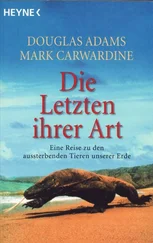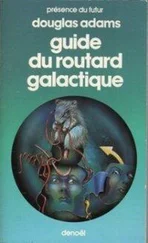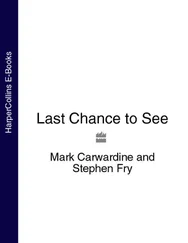Douglas Adams - Last chance to see
Здесь есть возможность читать онлайн «Douglas Adams - Last chance to see» весь текст электронной книги совершенно бесплатно (целиком полную версию без сокращений). В некоторых случаях можно слушать аудио, скачать через торрент в формате fb2 и присутствует краткое содержание. Жанр: Фантастика и фэнтези, на английском языке. Описание произведения, (предисловие) а так же отзывы посетителей доступны на портале библиотеки ЛибКат.
- Название:Last chance to see
- Автор:
- Жанр:
- Год:неизвестен
- ISBN:нет данных
- Рейтинг книги:5 / 5. Голосов: 1
-
Избранное:Добавить в избранное
- Отзывы:
-
Ваша оценка:
- 100
- 1
- 2
- 3
- 4
- 5
Last chance to see: краткое содержание, описание и аннотация
Предлагаем к чтению аннотацию, описание, краткое содержание или предисловие (зависит от того, что написал сам автор книги «Last chance to see»). Если вы не нашли необходимую информацию о книге — напишите в комментариях, мы постараемся отыскать её.
Last chance to see — читать онлайн бесплатно полную книгу (весь текст) целиком
Ниже представлен текст книги, разбитый по страницам. Система сохранения места последней прочитанной страницы, позволяет с удобством читать онлайн бесплатно книгу «Last chance to see», без необходимости каждый раз заново искать на чём Вы остановились. Поставьте закладку, и сможете в любой момент перейти на страницу, на которой закончили чтение.
Интервал:
Закладка:
Richard yanked the Landrover to a halt on the edge of the forest near the bottom of the gorge and we piled out of it. The air was brisk and clear, and Richard strode about the small clearing making an odd assortment of calling noises.
Within a minute or two the kestrel came zipping through the forest and perched itself up in a high tree overlooking a large hemispherical rock. Since the bird is adapted to living in the forest rather than the open land, it does not hover like many falcons, but can instead fly at great speeds unerringly through the forest canopy, where it catches its food of geckos, smaller birds and insects. For this it relies on having fantastically keen and fast eyesight.
We watched it for a while and it watched us intently. In fact it watched everything that moved, glancing rapidly in one direction after another with constant attention.
`See the way it's so interested in everything it can see? said Richard. `It lives by its eyes, and you have to remember that when you keep them in captivity. You must make sure they have a complex environment. Birds of prey are comparatively stupid. But because they've got such incredible vision you've got to have things that will keep them occupied visually.
'When we originally started breeding birds of prey in captivity we brought in some very, skittish birds and whenever anybody went past the aviary the birds just went mad, and we thought they must be upset by the disturbance, so someone came up with the bright idea of what's called a skylight and seclusion aviary. All four walls were opaque and just the roof was, open so that there was no disturbance for the birds. But what we found was that we'd overdone it. The offspring that were born in those environments were basket cases because they hadn't got the sensory input they needed. We'd got it completely the wrong way round.
`I mean, animals may not be intelligent, but they're not as stupid as a lot of human beings. You look at the primate areas in some zoos which are equipped with metal green architect-designed `trees' which, in a minimalist sort of way, reproduce the shape of the tree, but don't actually include any of the features that a monkey might find interesting about a tree: leaves and bark and stuff. It may look like a tree to an architect, but architects are a lot more stupid than monkeys. We just got a brochure through from the States for exactly this - fibreglass trees. The whole brochure was designed to show us how proud they were of what they could sell us here in Mauritius, and showing the particular paints they had for painting lichen on trees. I mean it's bloody ridiculous, who are these people? OK. Let's feed the bird. You watching?
The bird was watching. It's hard to avoid saying that it was watching like a hawk. It was watching like a kestrel.
Richard swung his arm back. The kestrel's head followed his movement precisely. With a wide underarm swing Richard lobbed the small mouse high up into the air. For a second or so, the kestrel just watched it, jittering its legs very slightly on the branch as it engaged in monumental feats of differential calculus. The mouse reached the top of its steep parabola, its tiny dead weight turning slowly in the air.
At last the kestrel dropped from its perch, and swung out into the air as if on the end of a long pendulum, the precise length, pivotal position and swing speed of which the kestrel had calculated. The arc it described intersected sweetly with that of the falling mouse, the kestrel took the mouse cleanly into its talons, swept on up into another nearby tree and bit its head off.
'He eats the head himself,' said Richard, `and takes the rest of the mouse to the female in the nest.'
We fed the kestrel a few more mice, sometimes throwing them in the air, and sometimes leaving them on the hemispherical rock for it to dive for at its leisure. At last the bird was fed up and we left.
The term `fed up' actually comes from falconry. Most of the vocabulary of falconry comes from middle English, and zoologists have adopted a lot of it.
For instance 'Teeking' describes the process by which the bird cleans its beak of meat after eating, by rubbing it along a branch. `Mutes' are the white trails along cliffs where the bird has been sitting. These are more normally called `bird droppings' of course, but in falconry talk they're `mutes'. `Rousing' is the action of shaking its wings and body, which is generally a sign that the bird is feeling very comfortable and relaxed.
When you train a falcon you train it by hunger, using it as a tool to manipulate the bird's psychology. So when the bird has had too much to eat it won't co-operate and gets annoyed by any attempts to tell it what to do. It simply sits in the top of a tree and sulks. It is `fed up'.
Richard became extremely fed up that evening, and with reason. It was nothing to do with eating too much, though it had a little to do with what other people liked to eat. A Mauritian friend came round to see him and brought her boss with her, a Frenchman from the nearby island of Reunion who was visiting the island for a few days and staying with her.
His name was Jacques, and we all took an instant dislike to him, but none so strongly as Richard, who detested him on sight.
He was a Frenchman of the dapper, arrogant type. He had lazy supercilious eyes, a lazy, supercilious smile and, as Richard later put it, a lazy, supercilious, and terminally stupid brain.
Jacques arrived at the house and stood around looking lazy and supercilious. He clearly did not quite know what he was doing in this house. It was not a very elegant house. It was full of battered, second-hand furniture, and had pictures of birds stuck all over the walls with drawing pins. He obviously wanted to slouch moodily against a wall, but could not find a wall that he was prepared to put his shoulder to, so he had to slouch moodily where he was standing.
We offered him a beer, and he took one with the best grace he could muster. He asked us what we were doing here, and we said we were making a programme for the BBC and writing a book about the wildlife of Mauritius .
`But why? he said, in a puzzled tone. `There is nothing here.'
Richard showed admirable restraint at first. He explained quite coolly that some of the rarest birds in the world were to be found on Mauritius . He explained that that was what he and Carl and the others were there for: to protect and study and breed them.
Jacques shrugged and said that they weren't particularly interesting or special.
'Oh?' said Richard, quietly.
`Nothing with any interesting plumage.'
`Really? said Richard.
'I prefer something like the Arabian cockatoo,' said Jacques with a lazy smile.
'Do you.'
'Me, I live on Reunion ,' said Jacques.
`Do you.,
'There are certainly no interesting birds there,' said Jacques.
`That's because the French have shot them all,' said Richard.
He turned around smartly and went off into the kitchen to wash up, very, very loudly. Only when Jacques had gone did he return. He stalked back into the room carrying an unopened bottle of rum and slammed himself into the corner of a battered old sofa.
`About five years ago,' he said, 'we took twenty of the pink pigeons that we had bred at the centre and released them into the wild. I would estimate that in terms of the time, work and resources we had put into them they had cost us about a thousand pounds per bird. But that's not the issue. The issue is holding on to the unique life of this island. But within a short time all of those birds we had bred were in casseroles. Couldn't believe it. We just couldn't believe it.
'Do you understand what's happening to this island? It's a mess. It's a complete ruin. In the fifties it was drenched with DDT which found its way straight into the food chain. That killed off a lot of animals. Then the island was hit with cyclones. Well, we can't help that, but they hit an island that was already terribly weakened by all the DDT and logging, so they did irreparable damage. Now with the continued logging and burning of the forest there's only ten per cent left, and they're cutting that down for deer hunting. What's left of the unique species of Mauritius is being overrun by stuff that you can find all over the world - privet, guava, all this crap.
Читать дальшеИнтервал:
Закладка:
Похожие книги на «Last chance to see»
Представляем Вашему вниманию похожие книги на «Last chance to see» списком для выбора. Мы отобрали схожую по названию и смыслу литературу в надежде предоставить читателям больше вариантов отыскать новые, интересные, ещё непрочитанные произведения.
Обсуждение, отзывы о книге «Last chance to see» и просто собственные мнения читателей. Оставьте ваши комментарии, напишите, что Вы думаете о произведении, его смысле или главных героях. Укажите что конкретно понравилось, а что нет, и почему Вы так считаете.







